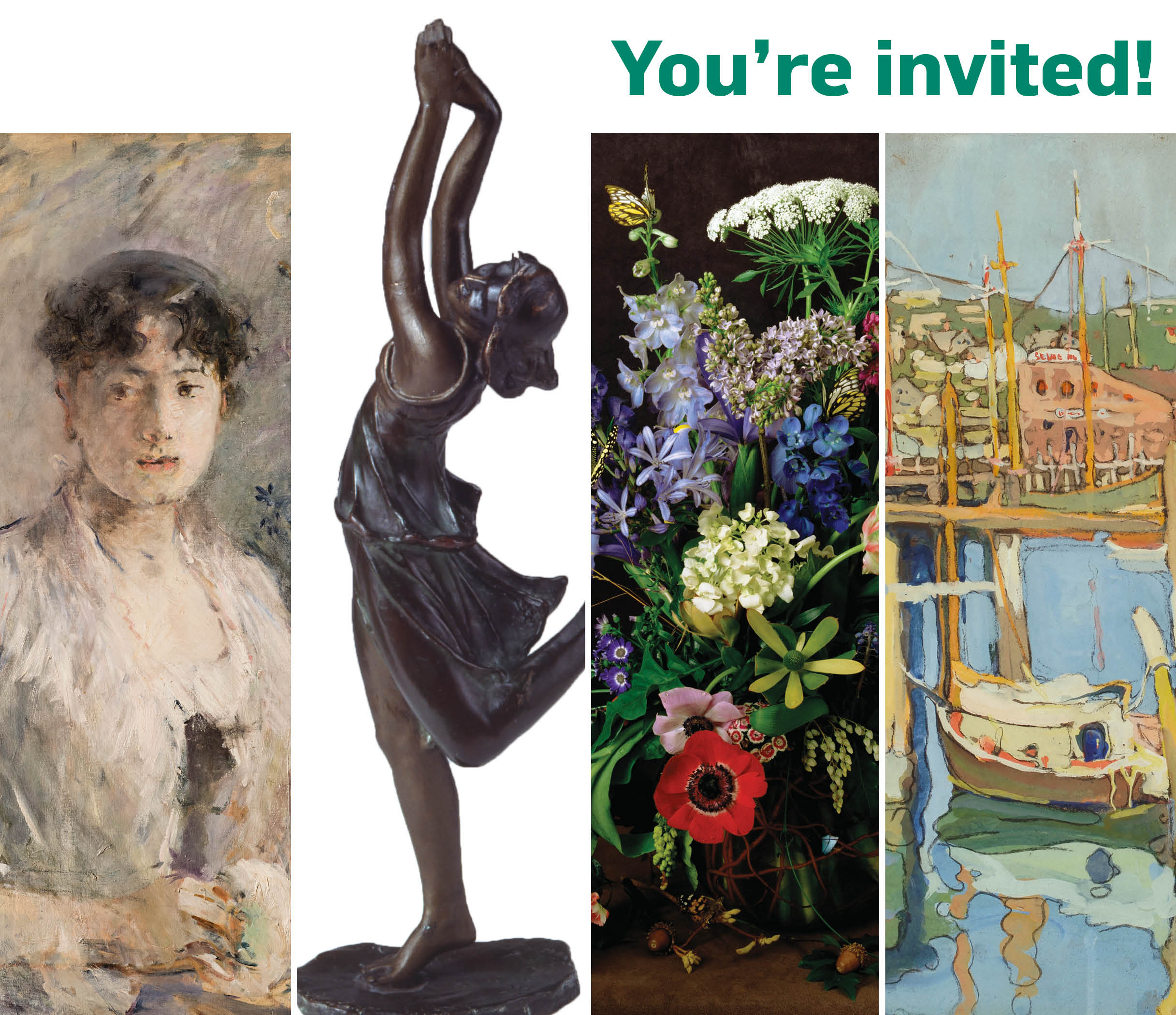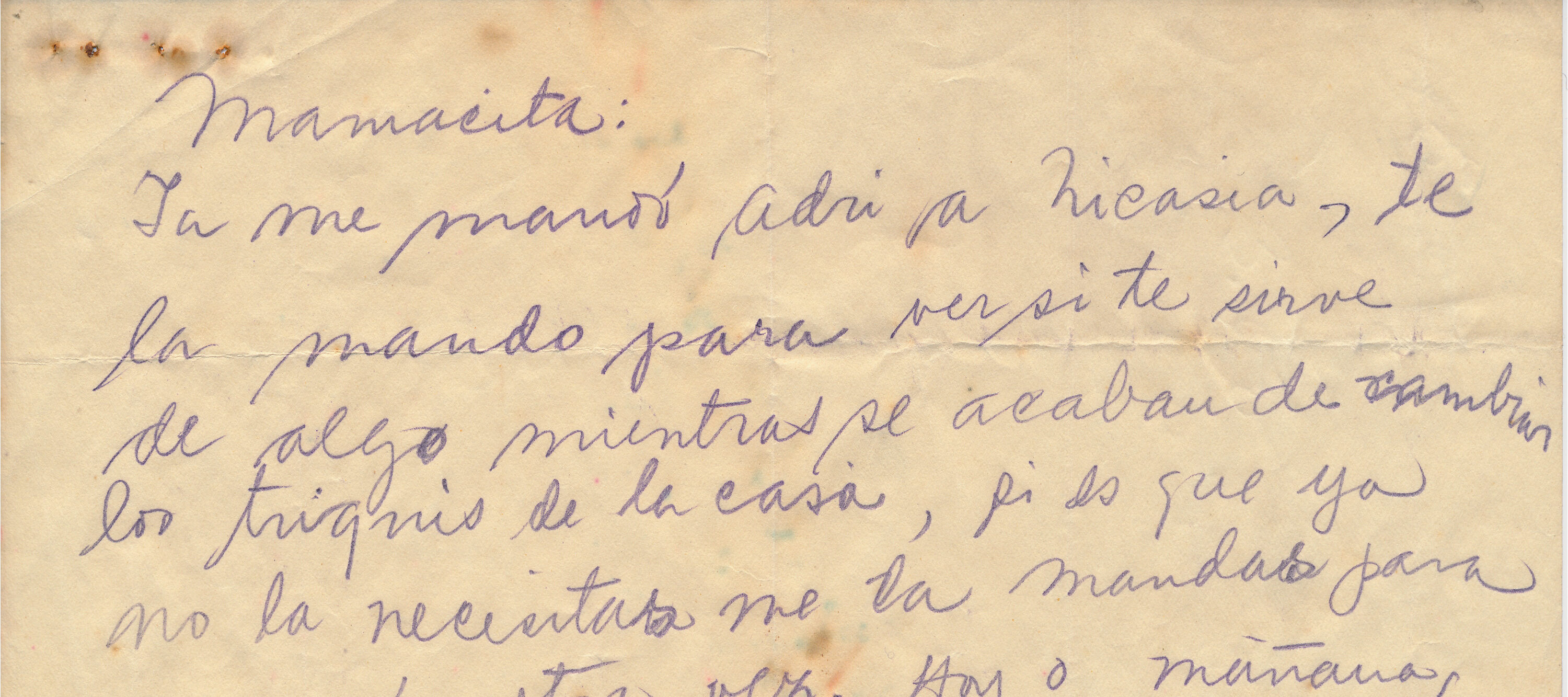In 2022, NMWA received a grant from the Institute of Museum and Library Services (IMLS) to help increase the museum’s digital accessibility. Part of the grant is dedicated to the Archives of Women Artists, housed in NMWA’s Betty Boyd Dettre Library and Research Center (LRC). As the archives are currently only accessible via in-person appointments, the grant supports transcribing the collections and uploading the materials to NMWA’s website, where they will be compatible with screen readers and other assistive technologies.
To kick off the project, the LRC enlisted the help of the public for a new kind of event at the museum: an archive transcribe-a-thon. Held on May 18, the first event focused on one of the archive’s most popular collections, the Nelleke Nix and Marianne Huber Collection: The Frida Kahlo Papers, 1930–1954. This collection consists of more than 369 letters written to or by Kahlo (1907–1954), various drawings, and printed matter. Kahlo gifted the collection to her trusted friend and doctor, Leo Eloesser, in the 1950s. In 1996, years after Eloesser’s death in 1974, artist Nelleke Langhout Nix purchased the materials and had them translated by Marianne Huber. Nix and Huber donated the collection to NMWA in 2007.
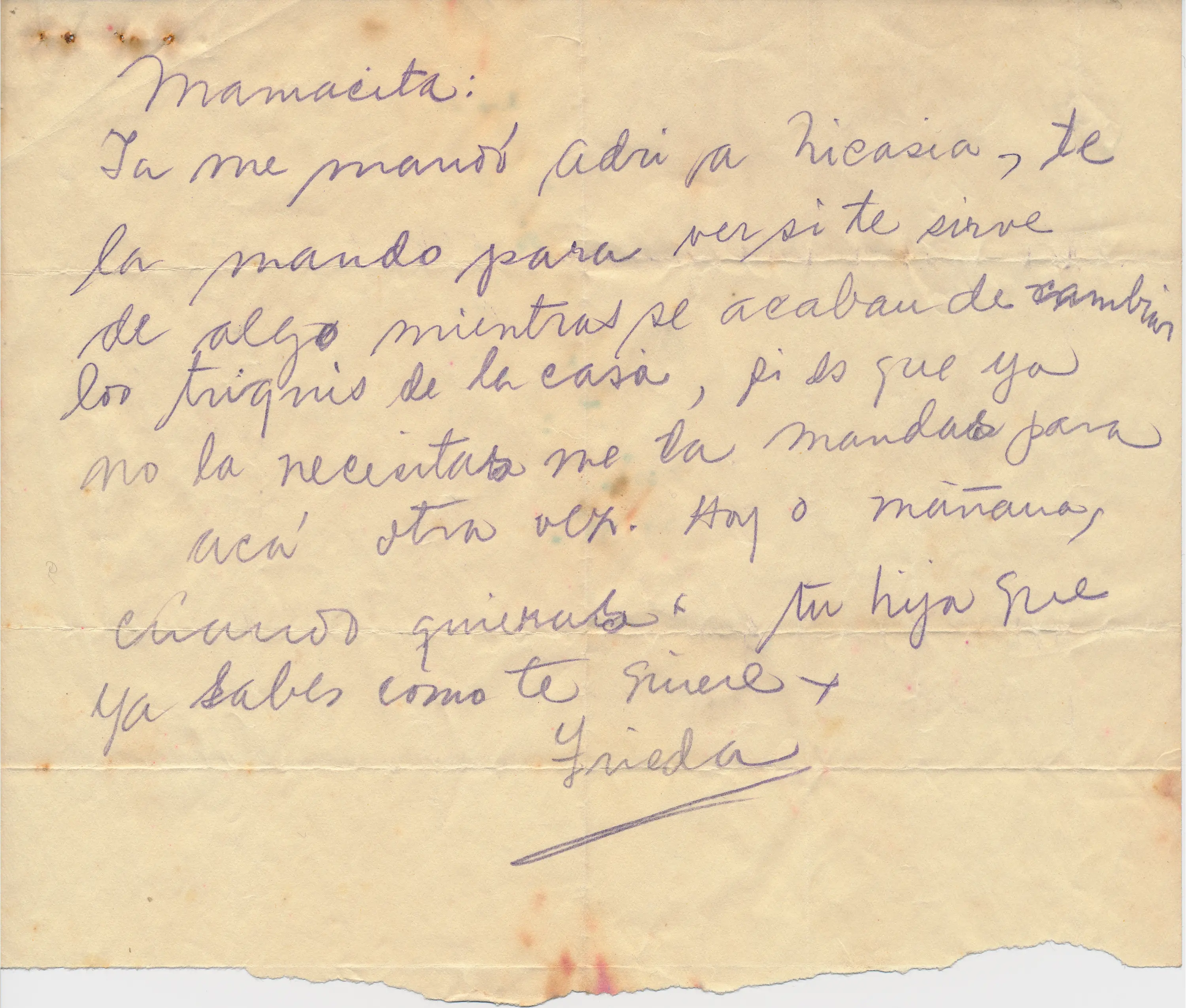
An archive transcribe-a-thon is an event in which individuals come together to transcribe materials held in an archive, converting handwritten text into typed text. I was inspired to plan the transcribe-a-thon after attending a presentation by the Smithsonian Transcription Center (STC) at the Digital Library Federation’s annual conference in November 2023. The STC offers virtual and in-person opportunities for volunteers to transcribe historical documents. This work is important because it allows improved access to historical records, making it easier for people around the world to obtain and use the information that these records contain. Hosting a transcribe-a-thon proved to be a great way for NMWA to achieve the IMLS grant goals, while also building relationships between the museum and the local D.C. community.
Bringing the Letters to Light
I planned this event by combing through the entire Kahlo collection and selecting 64 letters for transcription. I then grouped them into easy, medium, and hard categories, based on the fact that most participants were primarily English speakers. “Easy” letters were written entirely in English, while the rest were written in Spanish—or contained hard-to-read handwriting. On the day of the event, participants brought their own laptops and, after a brief tutorial, were assigned a letter to transcribe, working solo or in groups. To protect the delicate documents, participants were given photocopies of the original letters, but many original copies (held in sheet protectors) were displayed in the studio alongside select books about Kahlo from the LRC’s collection.
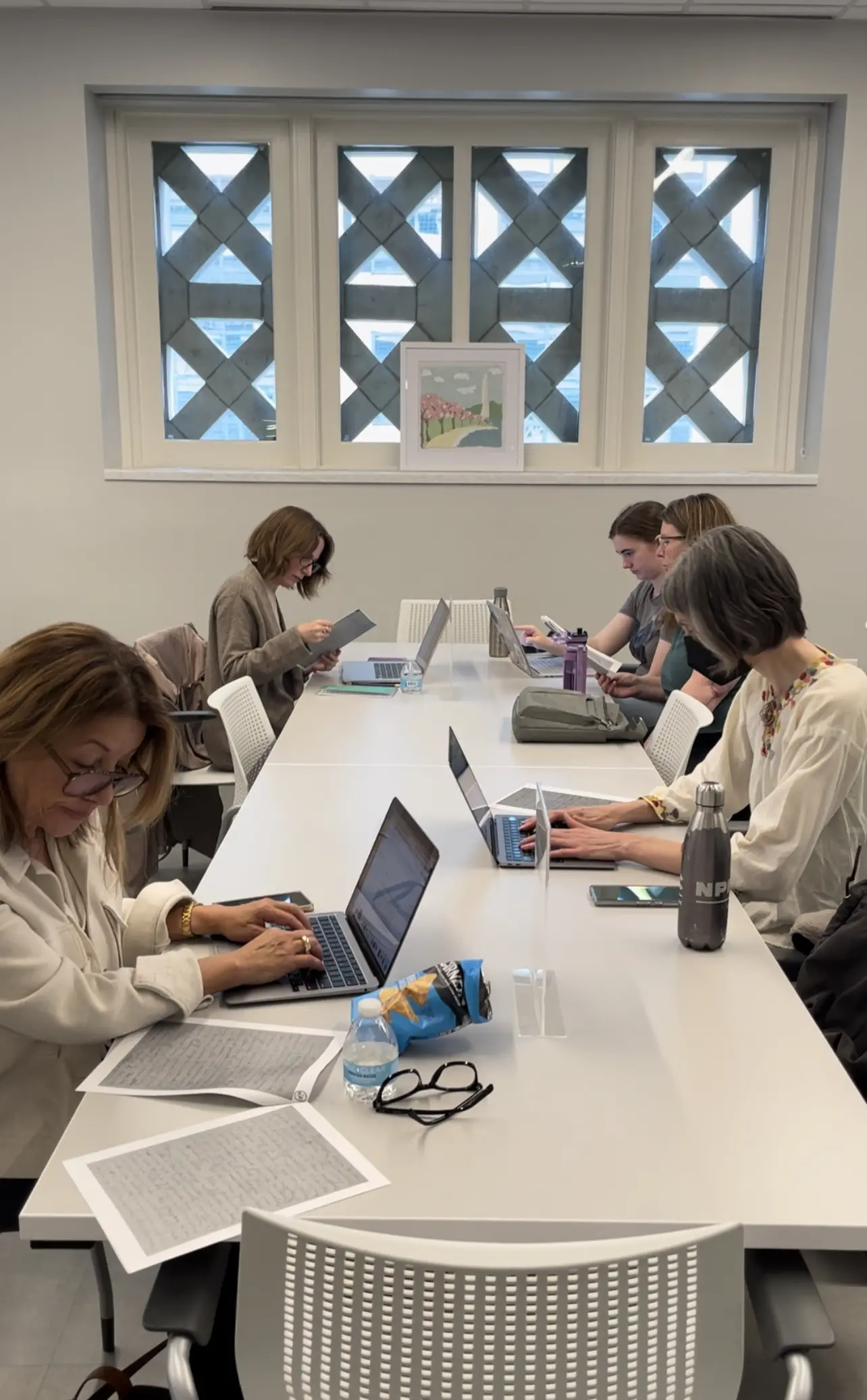
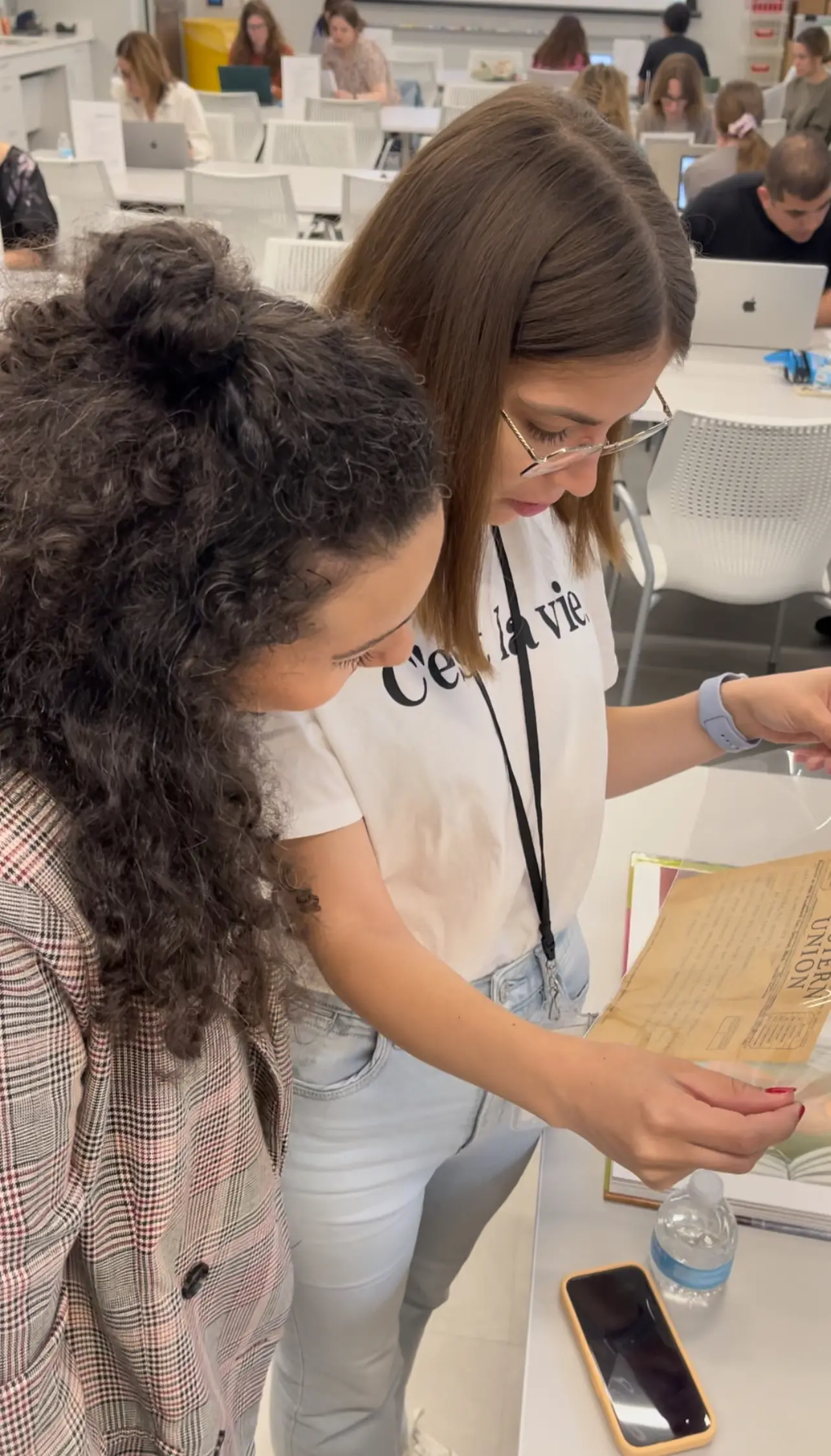
Several participants expressed their excitement about having access to these historically significant documents that provided insight into Kahlo’s personal life. One participant transcribed an undated letter from Margaret Sanger, the founder of Planned Parenthood, to Diego Rivera in which she discussed how much she enjoyed meeting Frida. Another participant worked on a letter written to Frida in 1933 by Diego Rivera’s ex-wife Guadalupe Marín. Marín and Kahlo were apparently cordial despite Rivera leaving Marín for Kahlo. She wrote to Frida asking her to convince Diego to send her more money to support the children she had with Diego. By the end of the event, the 25 attendees had transcribed 97 pages of letters.
The LRC is collaborating with the museum’s digital engagement team to add these transcriptions to the website, and we aim to have them posted by the end of the year. This program is just the first of many steps towards a more accessible NMWA! Stay tuned for more interactive programs in the future.
In 2012, the LRC presented Mamacita Linda: Letters between Frida Kahlo and her Mother, featuring a selection of the collection’s letters between Frida and her mother Matilde Calderón de Kahlo. Check out the accompanying online exhibition on Google Arts & Culture.
